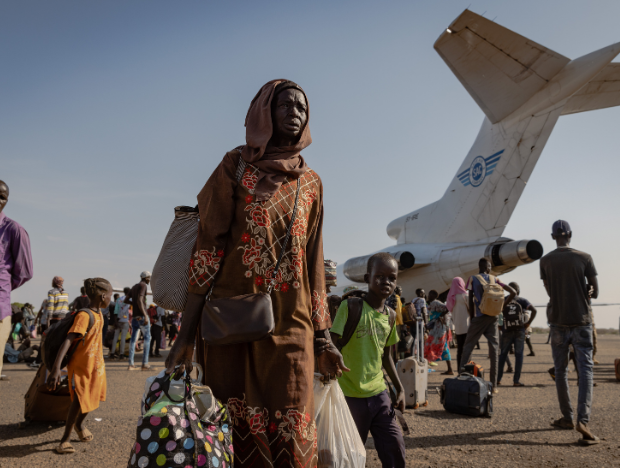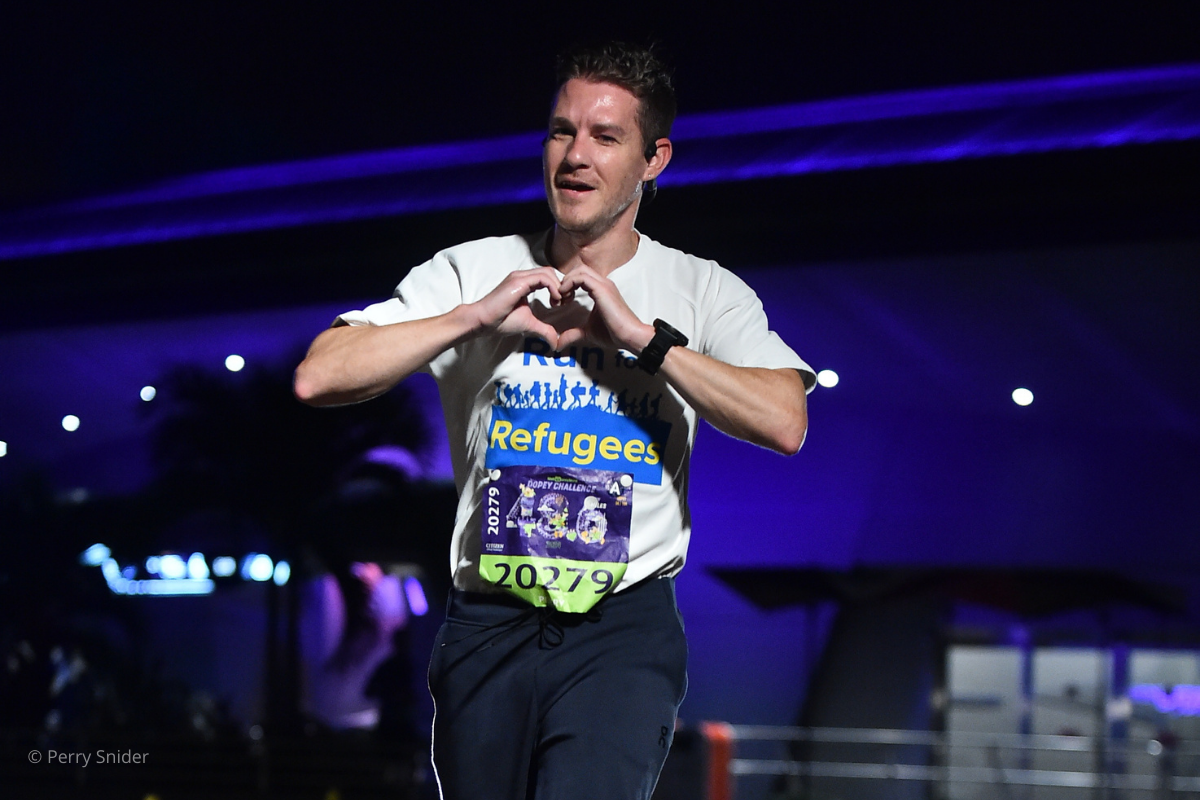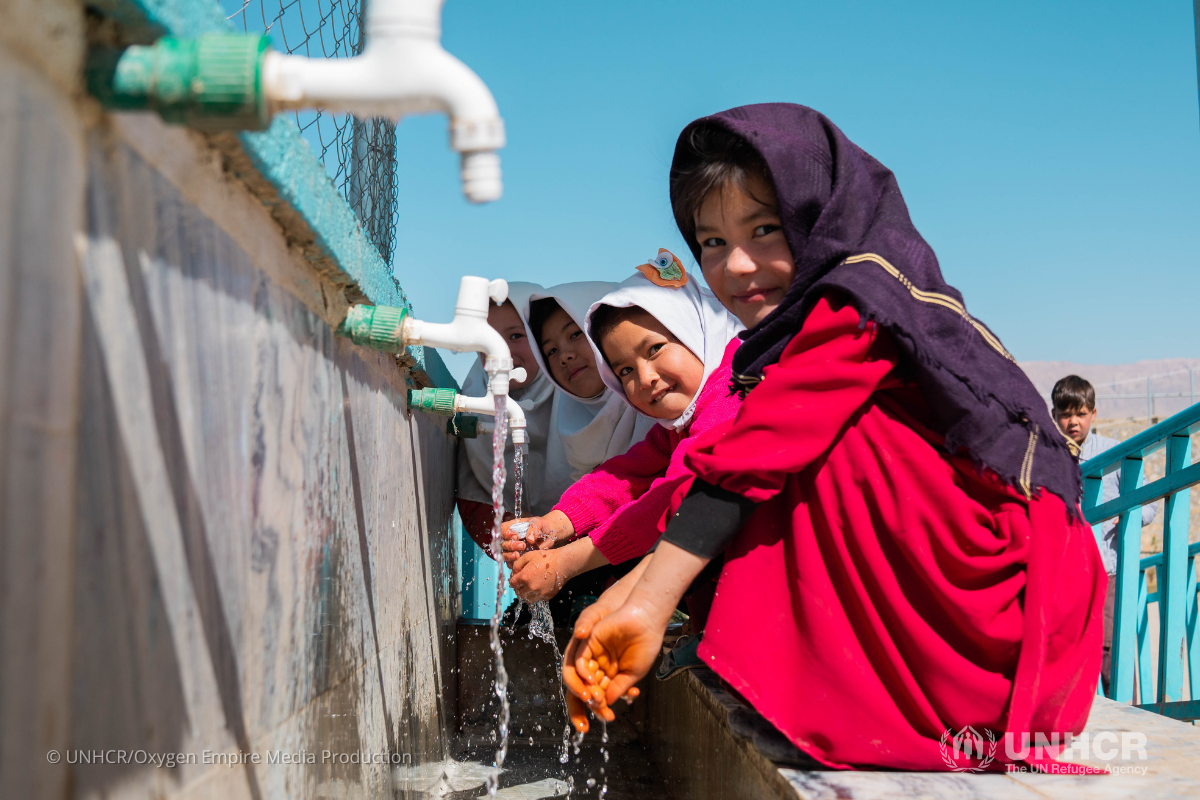Sustainability and empowerment: Bamboo treatment facility gives Rohingya refugees a chance to rebuild
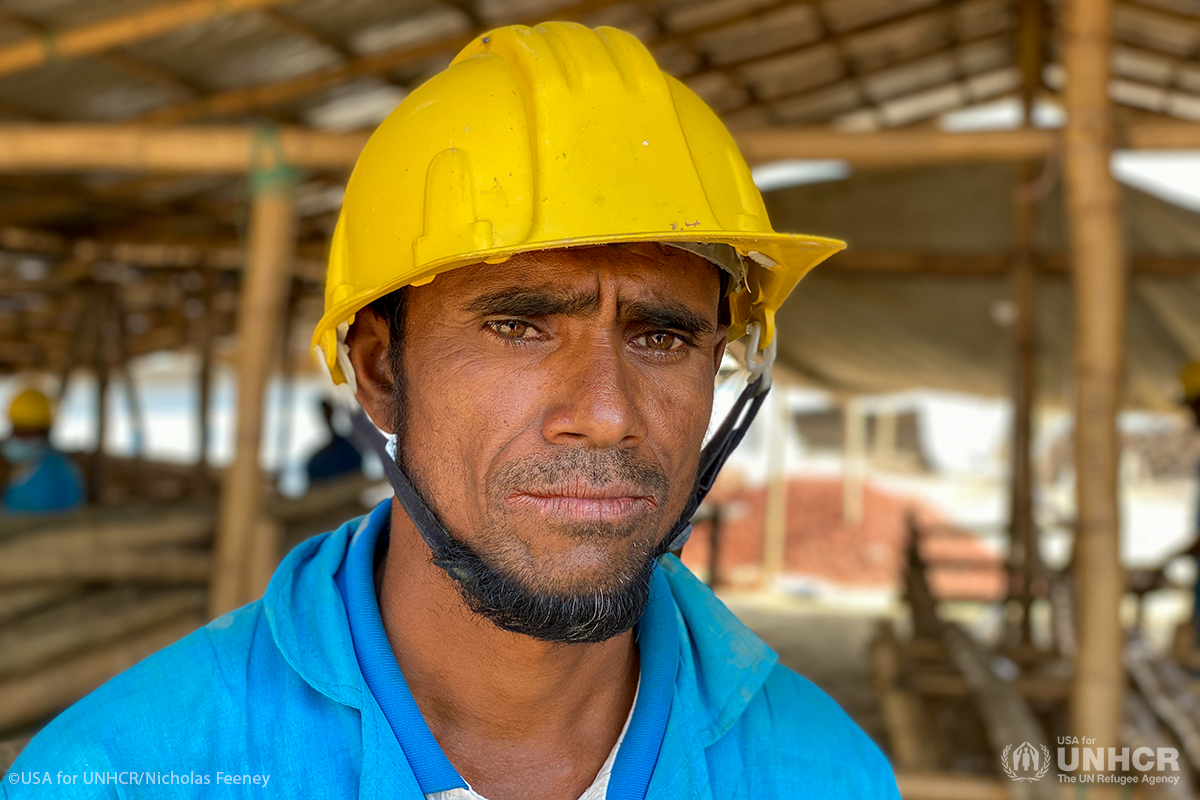
A constant rhythm of tak, tak, tak rings out from a large outdoor pavilion in Bangladesh’s Kutupalong refugee camp.
Under the shade of the pavilion’s awning, a team of 20 Rohingya refugees works hard to prepare bamboo poles that will first be treated to protect against insect infestation and then used to construct new shelters ahead of the monsoon season. Behind the workers, stacks of bamboo poles tower – thousands of poles are treated each month at the facility.
Noorul Islam, Rohingya refugee and a former farmer in Myanmar, works a machete along a bamboo pole smoothing out knots and checking for any signs of decay. He has been working at the facility since it first opened in November 2018. Although the work is hard, Noorul is happy for it. “I had a farm back in Myanmar and I’m more comfortable now that I’m working again,” he shares. “Sitting is not ideal for me.”
Since opening, the treatment facility has grown into a primary resource for sustainable building materials at the camp. When Rohingya refugees first arrived in Bangladesh after fleeing violent persecution in Myanmar in August 2017, shelter construction was a principle concern. Initially, shelters were constructed from untreated bamboo gathered from what was closest at hand. As demand for shelter materials began to outpace local supply, a more environmentally sustainable way to source shelter materials was critically needed.
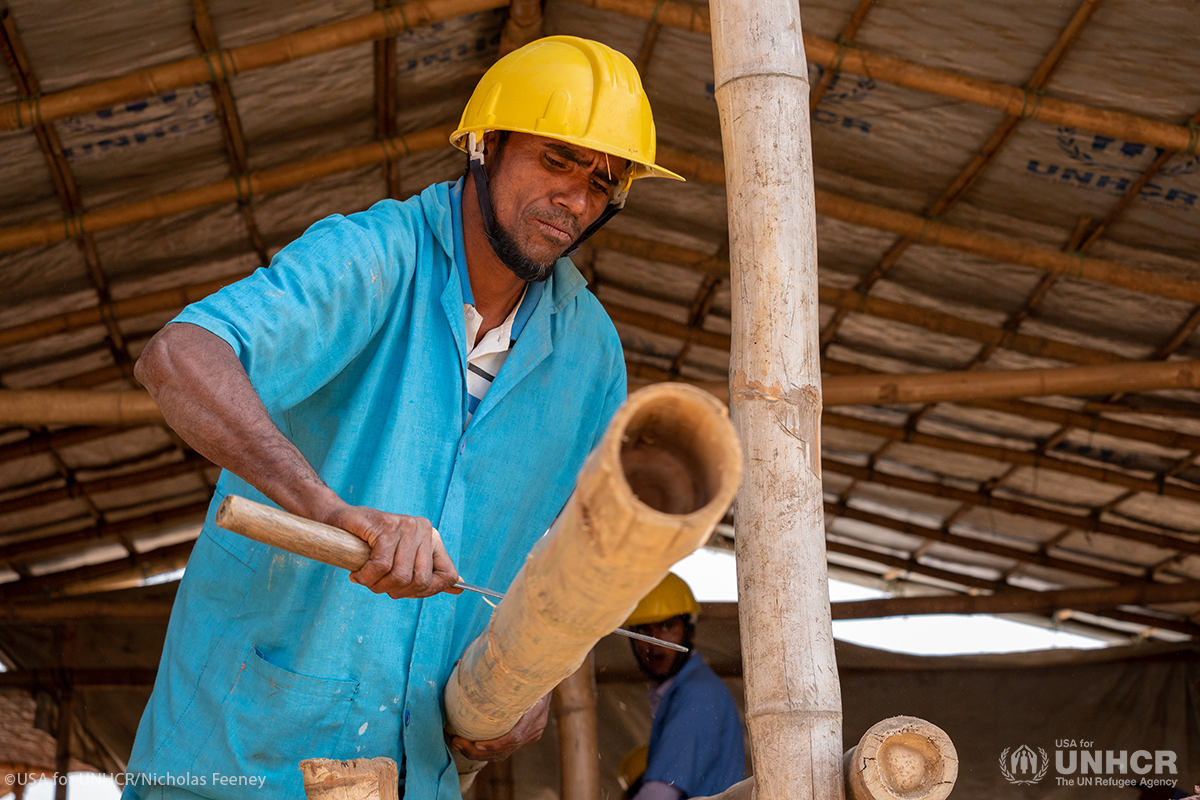
At the facility, bamboo poles are treated for two weeks with a boric and borax acid solution to protect the poles against infestation while strengthening against rain and rot. Treated bamboo poles lasts for approximately 10 years -- untreated poles decay in fewer than two.
In preparation for Bangladesh’s monsoon season (June – October), the production of quality bamboo poles is lifesaving work. Preparing the camp requires tens of thousands of strong and reliable bamboo poles for shelters, bridges, health clinics and education facilities. Nearly 10,000 bamboo poles will be treated each month at the facility Noorul works at.
Working at the facility not only gives refugees like Noorul a meaningful way to help protect the camp, it helps them provide for their families. Noorul earn $325 Bangladeshi Taka a day (approximately $4 USD) and can work up to 16 total days a month. The pay is humble, but even the small amount helps Noorul bring more comfort to his family. Most of the money he earns is used to purchase food for his wife and children.
As for the future of his family, Noorul is focused on the health and wellbeing of his children. “The future is uncertain, but I will work hard no matter what.”
Rohingya refugees in Bangladesh need your help…
UNHCR is on the ground providing lifesaving humanitarian support to hundreds of thousands of Rohingya refugees. In 2019 alone, 100,000 Rohingya refugees received shelter repair and replacement assistance before the monsoon rains arrived. However, they need your help. Becoming a monthly donor is the most efficient and effective way to help those fleeing conflict. Make a difference in the lives of refugees by becoming USA for UNHCR’s newest monthly donor.
